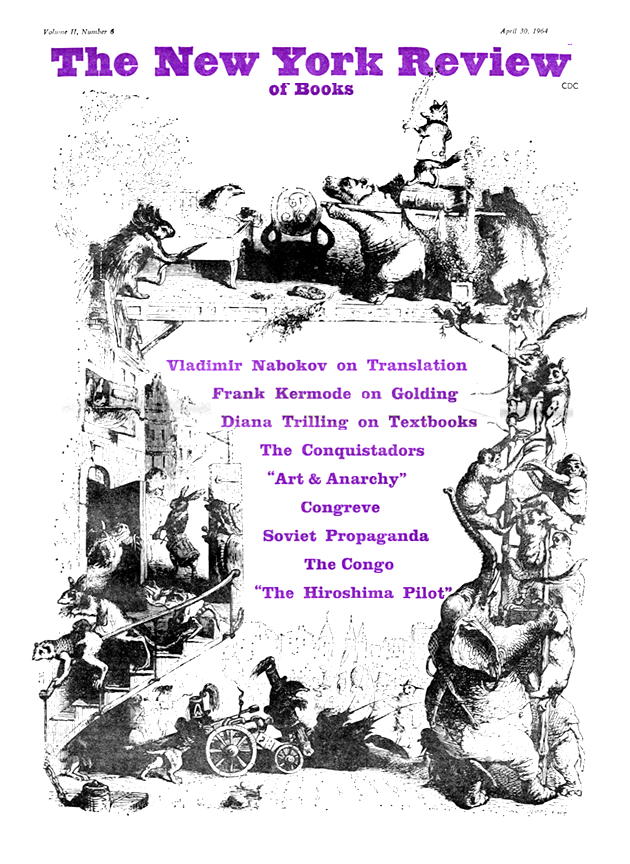In response to:
The Disaster at Lincoln Center from the April 2, 1964 issue
To the Editors:
Surely one does not have to defend the current season at Lincoln Center in order to take exception with the overripe tantrum masquerading as analysis written by Elizabeth Hardwick for your last issue…
It seems ridiculous to have to point it out, but the literary values of any particular stage production are only one part of its total theatrical values, the remainder of which are achieved through those so-called “secondary arts” of the director and actor, among others. When Miss Hardwick condescendingly dismisses the drama as, “After all, literature written for the stage,” she misses the essence of those very gifts she so applauds, for instance, in Zeffirelli’s revival of Romeo and Juliet. For they are obviously non-literary gifts; the talent of Zeffirelli lies, after all, in Zeffirelli, not in Shakespeare. Of course the literary value of Marathon ’33 was nil, less than nil, if possible; but the theatrical elements of the production as developed by the performers and director made it an event of considerable theatrical value.
However, Miss Hardwick is not interested in theatrical values in the theater, only literary ones. But what, precisely, does that mean? What plays? Beyond “The Trojan Women and European drama” she does not say…. It seems…ridiculous to ask Miss Hardwick, who is so determined to judge things theatrical according to a literary standard, to define what she means by literature…
Lincoln Center has its problems of course, and someone there has obviously made distressing mistakes. It might be interesting to discuss some of them in this journal; but such a discussion can proceed with Miss Hardwick only after she has defined the terms of this literary yardstick with which she is beating the American theater.
David Shaber
New York City
Miss Hardwick replies:
I wrote out of my despair for today’s theater, but it does not surprise me that there are some who are more satisfied with things as they are than I am. After all, I read the newspapers. No doubt there are happy instances I might have commended but I was writing about our “situation” in a general way and particularly about the Repertory Theater of Lincoln Center. A few things I might add: in my disillusion with professionalism I am not thereby awaiting a theater made up of housewives and bond salesman, moonlighting on the weekends. I used the word “professional” as the opposite of “artist.” In New York if you have participated in ten bad productions you will very likely be chosen for the eleventh since, no matter what your results, you are a “professional.” I have the idea, also, that even writing about the theater is felt to be a trade for which one needs a union card, a daily paper. About drama as literature, I did not have in mind that part of the theater which depends upon mime, dance, etc. I meant that part of the theater dependent upon a written text. I can only repeat that when I go to the contemporary American theater I am floored by these texts…One more thing: Mr. Luckinbill is right. I have spent a lot of time in the village library.
This Issue
April 30, 1964


